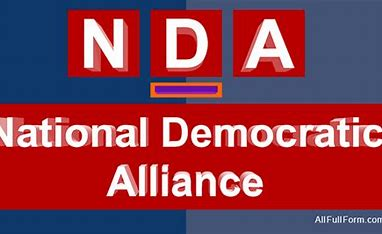What is NDA collision govt ? how did it works?
In today's rapidly evolving business landscape, the protection of confidential information has become paramount. Non-Disclosure Agreements (NDAs) serve as vital legal instruments designed to safeguard sensitive information shared between parties. Whether in the realms of technology, finance, or creative industries, NDAs play a crucial role in fostering trust and facilitating collaboration while mitigating the risks associated with unauthorized disclosure.
Firstly, NDAs establish a confidential relationship between the parties involved. By delineating what constitutes confidential information and outlining the obligations of both parties regarding its protection, these agreements provide a framework for trust and cooperation. This clarity is essential, especially in situations where proprietary knowledge forms the foundation of a business venture or partnership.
Moreover, NDAs serve as deterrents against the unauthorized dissemination of sensitive information. With the threat of legal repercussions for breaches of confidentiality, individuals and entities are incentivized to handle shared information with the utmost care. This deterrent effect not only protects the interests of the disclosing party but also encourages a culture of respect for intellectual property rights.
Furthermore, NDAs offer a means of recourse in the event of a breach. By outlining the potential remedies available in case of unauthorized disclosure, these agreements provide a mechanism for seeking redress and enforcing compliance. Whether through monetary damages or injunctive relief, NDAs empower aggrieved parties to take action against breaches of confidentiality, thus safeguarding their interests and preserving the integrity of their confidential information.
However, it's essential to recognize that NDAs are not without their limitations and considerations. Firstly, the enforceability of NDAs may vary depending on jurisdiction and the specific circumstances surrounding the agreement. Factors such as the clarity of the terms, the nature of the information involved, and the context of the disclosure can all influence the effectiveness of an NDA in a legal context.
Additionally, the overuse or misuse of NDAs can stifle innovation and impede collaboration. In industries where the exchange of ideas is fundamental to progress, overly restrictive NDAs may discourage potential partners or collaborators from engaging in meaningful discussions for fear of legal repercussions. Balancing the need for confidentiality with the imperative of fostering innovation requires careful consideration and negotiation when drafting NDAs.
In conclusion, Non-Disclosure Agreements play a vital role in safeguarding confidential information and fostering trust and collaboration in various sectors. By delineating obligations, establishing deterrents, and providing mechanisms for recourse, NDAs help protect the interests of parties involved in sharing sensitive information. However, it's crucial to approach the use of NDAs thoughtfully, balancing the need for protection with the imperative of fostering innovation and collaboration in today's interconnected business landscape.


Comments
Post a Comment